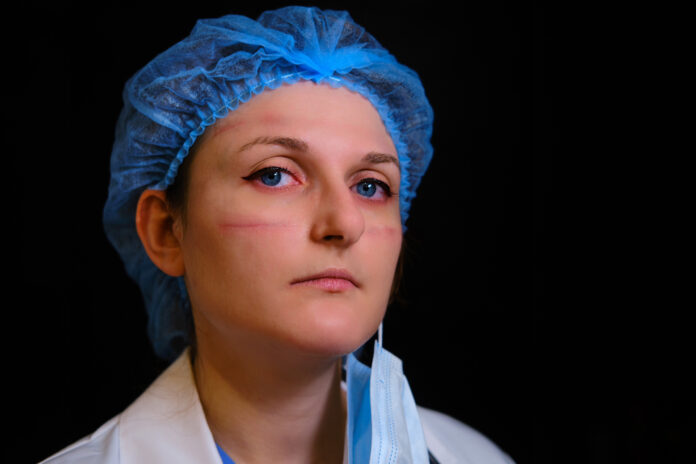By Tim Gruver
A bipartisan bill in the Washington Legislature seeking to reopen much of the state is driving a wedge between business owners and frontline health care workers exhausted by the pandemic.
Effective January 11, Gov. Jay Inslee moved the state to a phased reopening plan requiring counties to meet four health metrics to progress between phases.
Those metrics include two-week declines in new COVID-19 cases and hospital admission rates per 100,000 people, in addition to week-long positivity rates of less than 10% and an ICU bed capacity of less than 90%.
All Washington counties are currently in Phase 1 of the plan, which bans indoor dining for bars and restaurants.
Under Phase 2, bars and restaurants could resume indoor service and operate at 25 percent capacity, much like retailers and places of worship.
Sponsored by both Democratic and Republican state lawmakers, Senate Bill 5114 would move the state’s 39 counties from Phase 1 to Phase 2 of Inslee’s “Healthy Washington Roadmap.”
The bill would see the Legislature review public health data to assess any additional health recommendations through January 10, 2022.
Lacy Fehrenbach, assistant secretary to the Washington Department of Health (DOH), told lawmakers on Wednesday that state health data cannot justify the bill’s efforts to reopen businesses.
“I know this is difficult, we know that this is difficult,” Fehrenbach said. “I also want to emphasize that while we have begun our reopening journey and some regions may be close, it is not the time to move the whole state forward.”
In the week after Christmas, Washington saw a 12% increase in weekly case rates from 2,308 cases to 2,636 before seeing a 9% dip down to 2,374 cases in the past week.
Washington has seen 281,258 confirmed COVID-19 cases and 3,940 deaths from the virus to date. Approximately 18% of those cases and 12% of all deaths have stemmed from the past 30 days.
The virus has also hospitalized 16,848 people around the state with about 16% of all hospitalizations have also happened in the past 30 days.
Kat Wood, a nurse at St. Joseph Medical Center in Tacoma, told the committee that adult ICU beds at her hospital are at 94% capacity, leaving pandemic responders like herself with few resources to handle a case surge.
“We all have COVID-19 fatigue and reopening our economy is vital, but we just follow science and data and not open the entire state arbitrarily,” Wood said. “If we open the state too early, it will open the flood gates to further overwhelm my hospital and the colleagues I work with.”
Wood said state lawmakers should instead focus on passing relief for businesses and workers.
In December, Inslee dispersed $50 million in small business grants to counties and has included $100 million more in his proposed two-year budget.
On Wednesday, 1,600 people signed into the Senate State Government and Elections Committee’s virtual hearing on the bill, with approximately 400 people asking to testify.
Among the business owners who got a minute of airtime with the committee was Michael Dynes, who runs the Little Conejo taco shop in Vancouver, Washington.
Dynes, who employed 44 workers at his shop’s height, said he lost 25% of his business in 2020, and federal loans have not been enough to cover the costs of his shop’s recent expansion to Portland.
“At the beginning, I was supportive of all this, but as the numbers continue to surge with restaurants still shut down, I think the logic is a little muddy,” Dynes said.
DOH data shows restaurants and food service establishments in the state lead the agency’s list of largest workplace outbreaks with 239 reported cases to date, putting it ahead of homeless shelters, childcare centers, and construction sites.
The bill is backed by the Washington Hospitality Association, whose industry namesake has seen 71,400 jobs lost since last March, or 21% of its workforce.
Neeru Kaur, a respiratory therapist at Seattle’s Haborview Medical Center, argues that reopening the entire state will outsource the financial toll of the pandemic from businesses to the state’s strained healthcare system.
“When you contract COVID, you are not in the hospital for a week or two, you’re there for months,” Kaur said. “That is a huge economic strain on the health care system and families. That does not help with the economic recovery.”
A July study from the nonprofit health care watchdog group Fair Health found the nationwide median charge for COVID-19 inpatient care was $45,683 for people ages 51 to 60 and $34,662 for those ages 23 to 30.
Washington Sen. Perry Dozier, R-Waitsburg, has called on the State Government and Elections Committee’s Democratic majority to vote on advancing SB 5114 to the Senate floor.
Dozier is one of 16 sponsors of the bill, which was introduced by Washington Sens. Mark Mullet, D-Issaquah, and Senate Minority Leader John Braun, R-Centralia.
The bill largely fulfills promises from Republicans to limit Inslee’s gubernatorial powers going into 2021 and bipartisan calls in the Legislature to relax pandemic business restrictions.
Inslee has said Washington will strive to vaccinate 45,000 people per day as the nation anticipates a renewed vaccine rollout under the Biden administration.
Originally published by The Center Square. Republished with permission.











